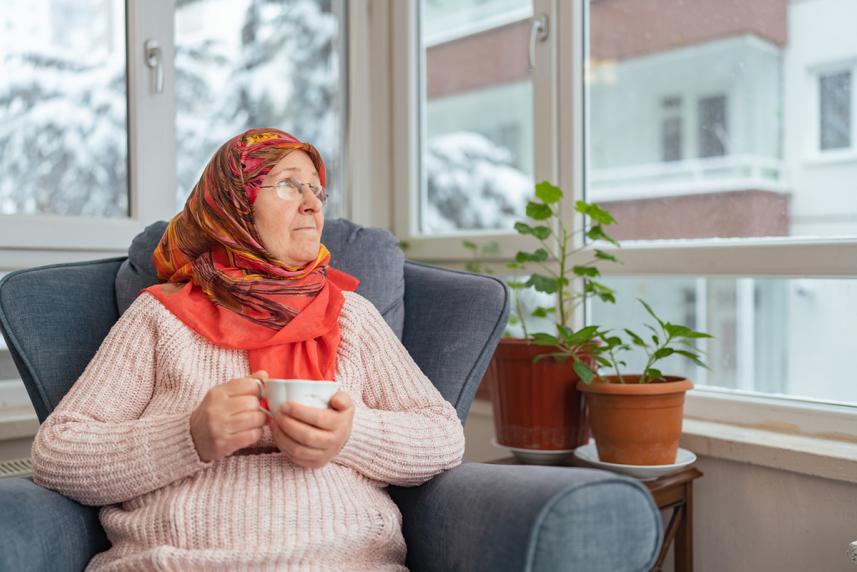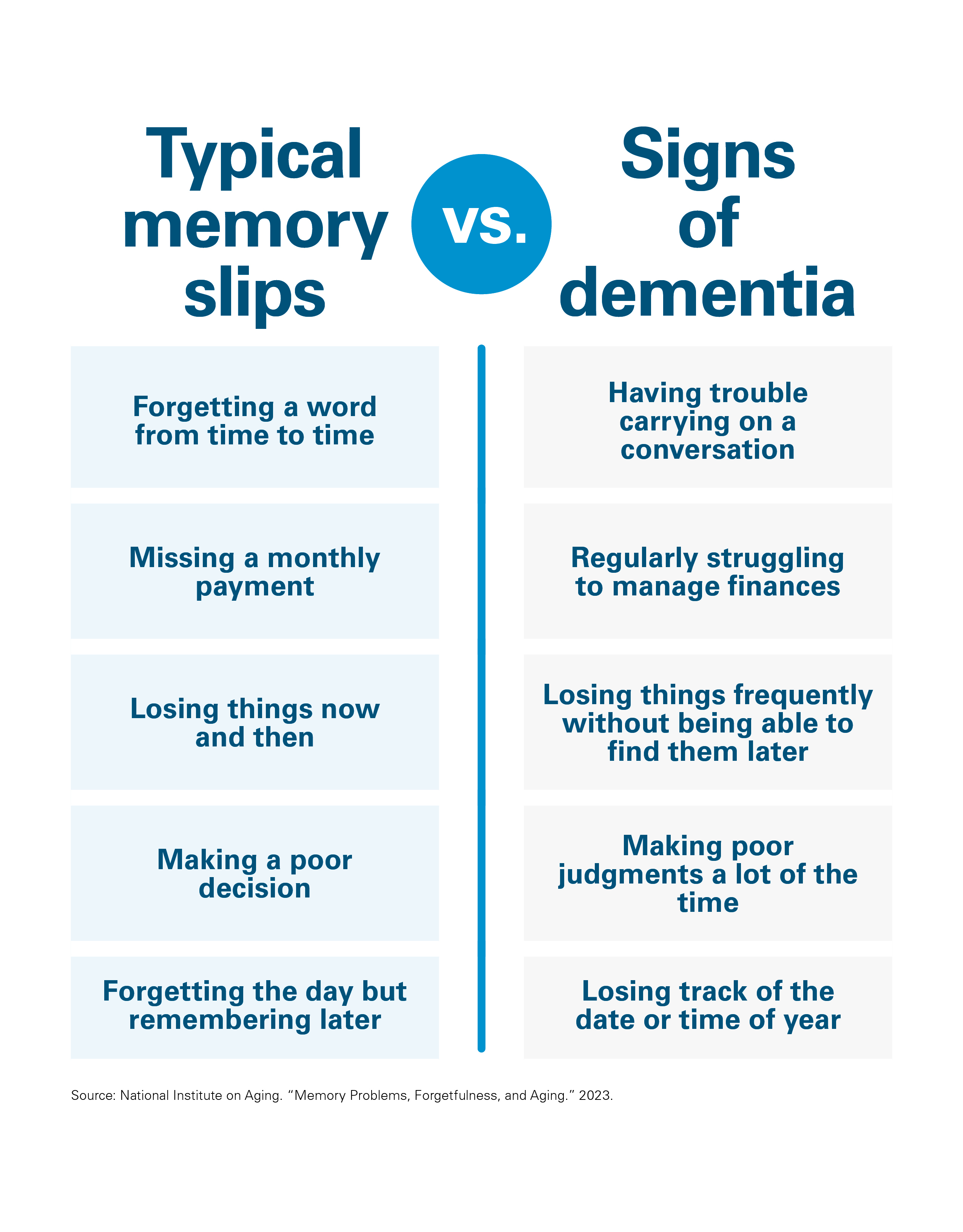What dementia looks like in older adults — and how to help
Dementia is more than just memory loss. Learn about its lesser-known signs and symptoms, so that you'll know how to spot them in an older loved one.

Misplacing your reading glasses. Forgetting to pay a bill. Thinking it’s Friday when it’s only Thursday.
When these things happen occasionally, they can be attributed to normal, age-related forgetfulness, according to the National Institute on Aging. But if your older loved one is experiencing more severe problems with memory and thinking skills, it could be a sign of dementia.
Caring for someone with dementia can be tough on both you and your loved one. Since there is no cure, there’s no hope that the person will eventually get over the disease. But there are ways to ease the symptoms and help your loved one slow the progression of the disease — and help caregivers stay strong.
Here’s what you need to know to identify signs of dementia in an older loved one, and how to support them — and yourself — during the caregiving process.
What are the signs and symptoms of dementia in older adults?
Dementia is a term used to describe a group of neurological disorders, including Alzheimer’s disease, which affect the brain. It’s marked by problems with thinking, memory, and reasoning.
Memory loss is perhaps the most well-known symptom of dementia. But it’s not the only one. And symptoms vary depending on the type of dementia someone has.
Generally, dementia symptoms include:
- Apathy, or not caring about people’s feelings
- Balance and mobility issues
- Getting lost in a familiar neighborhood
- Hallucinations, delusions, and paranoia
- Impulsivity
- Memory loss and confusion
- Poor judgment and reasoning skills
- Problems reading and writing
- Repeating questions
- Speech changes
- Taking longer than usual to complete routine tasks
- Trouble understanding or expressing thoughts
- Using unusual words to refer to familiar objects
- Vision changes
How can I help an older loved one who has dementia?
If you notice changes in your loved one’s thinking or memory skills, it’s a good idea to have a conversation with them. You can share your concerns and talk to them about visiting a doctor, who can diagnose them and help create a care plan.
Although there is no cure for dementia, you can help support your loved one by encouraging these healthy behaviors that may slow cognitive decline. Research suggests that these strategies can help a person with dementia keep their abilities longer.
Address other health issues that may contribute to their cognitive decline. Dementia typically progresses faster in people who have another health condition, such as diabetes. It’s important to make sure your loved one is up to date on visits with their primary care physician.
Encourage them to limit substance use. Smoking and excessive alcohol consumption have been linked to cognitive decline. If your loved one drinks, help them stick to one drink per day.
Help them eat a nutritious diet. Aim to fill their plate with plenty of fruits, vegetables, beans, and whole grains. You can help make mealtimes easier by preparing dishes in advance that can stay in the refrigerator or freezer.
Encourage them to exercise regularly. Getting regular physical activity has been shown to improve cognitive function, even in people who already have memory problems. Consider asking your loved one to join a fitness class with you. Even going on walks and weeding the garden together counts.
Make sure they get enough sleep. Sleeping for seven to eight hours per night may help prevent cognitive issues from progressing. If your loved one lives alone and tends to stay up late, consider setting a recurring alarm to let them know when it’s time to go to bed.
Keep up with their hearing and vision exams. Untreated hearing and vision loss may contribute to problems with thinking and memory. Make sure your loved one is up to date on these important exams.
Help them stay social. People who feel connected to other people are less likely to have cognitive issues than those who feel lonely or socially isolated. Your loved one’s local library may have resources on local clubs and organizations they can join to meet new people.
Use memory aids around their home. Placing tools like calendars and labels around your loved one’s home can help them to remember.
Is it normal to feel overwhelmed when caring for a loved one with dementia?
Being a caregiver can feel incredibly rewarding. But taking care of a loved one with dementia can be particularly challenging. It doesn’t mean you’re doing anything wrong, and it doesn’t mean your loved one is a burden. It just means you’re doing a lot to care for someone who is living with a difficult disease.
More than 16 million Americans care for folks with dementia. Caregivers of people with dementia typically spend more time in the role than caregivers of people with other health conditions.
As the old saying goes, you can’t pour from an empty cup. It’s important to remember to care for yourself, too. The Alzheimer’s Association suggests these strategies to stay physically and mentally healthy while you’re caring for a loved one with dementia:
- Fill your plate with fruits, veggies, lean protein, and whole grains.
- Limit processed foods and added sugar.
- Try to meet the recommended 150 minutes of exercise per week.
- Set aside some time each day just for yourself.
- Remember it’s OK to ask for help.
- Stay up to date on your own health checkups.



